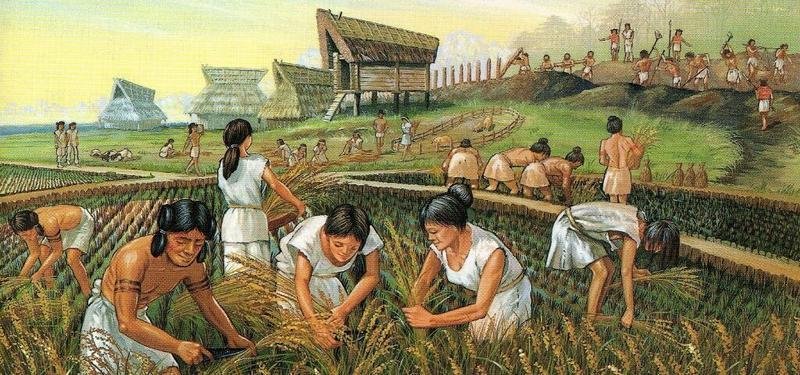Tracing the Path of Organic Farming Through the Ages
Organic farming, a harmonious dance between humanity and nature, has been practised for thousands of years. This regenerative agricultural practice goes beyond planting seeds; it's a philosophy that embraces the interconnectedness of all living things. Let's embark on a journey through time to uncover the roots and evolution of organic farming.
Ancient Wisdom
The origins of organic farming can be traced back to ancient civilizations. Around 12,000 years ago, a massive cultural shift happened that would change the course of history. Humans who previously subsisted by hunting and gathering realised they could grow their own food through cultivation. Practices such as crop rotation and companion planting have long been integral within indigenous cultures to maintaining soil fertility and preventing pests. The understanding that a healthy soil ecosystem yields robust crops laid the foundation for organic principles.
“For as long as people have been farming, natural, organic methods have been the norm.”
18th and 19th Centuries
The agricultural revolution brought about significant changes as synthetic fertilisers and pesticides entered the scene. However, visionaries like Sir Albert Howard and Lady Eve Balfour emerged, advocating for a return to sustainable, nature-aligned farming methods. Their pioneering work laid the groundwork for the organic movement.
Birth of the Organic Movement
The mid-20th century witnessed the formalisation of organic farming principles. Influential figures such as J.I. Rodale and Rachel Carson spotlighted the environmental impact of synthetic chemicals. Rodale's publication of "Organic Farming and Gardening" and the establishment of the Rodale Institute marked a pivotal moment, promoting the idea of working with nature rather than against it.
(Image J.I.Rodale)
Organic Certification
As interest in organic practices grew, the need for standardised guidelines became evident. The establishment of certification bodies and standards provided consumers with a reliable way to identify and support organic products. This marked a turning point, fostering consumer trust in organic farming.
Global Expansion
The late 20th century and early 21st century witnessed the global spread of organic farming. From small-scale farmers to large commercial enterprises, a diverse range of practitioners embraced organic principles. International organisations like the International Federation of Organic Agriculture Movements (IFOAM) played a crucial role in uniting the global organic community. The global organic market was valued at USD 181.5 Billion in 2022 and is projected to grow 12% by 2030.
Challenges and Innovations
Organic production is growing rapidly around the world as consumers start to recognise the health and environmental benefits. However, organic farming hasn't been without challenges, from scepticism about its scalability to the lack of governmental support for farmers wanting to transition to organics. Organic practitioners continuously innovate. Agroecology, permaculture, and regenerative agriculture have emerged as complementary approaches, enriching the organic movement.
Towards a Regenerative Future
Today, organic farming stands at the forefront of sustainable agriculture. Consumers are increasingly recognising the importance of supporting practices that prioritise environmental health and human well-being. The journey continues as we must continue our advocacy for ongoing research, innovation, governmental support, and a collective commitment to a more organic regenerative future.




